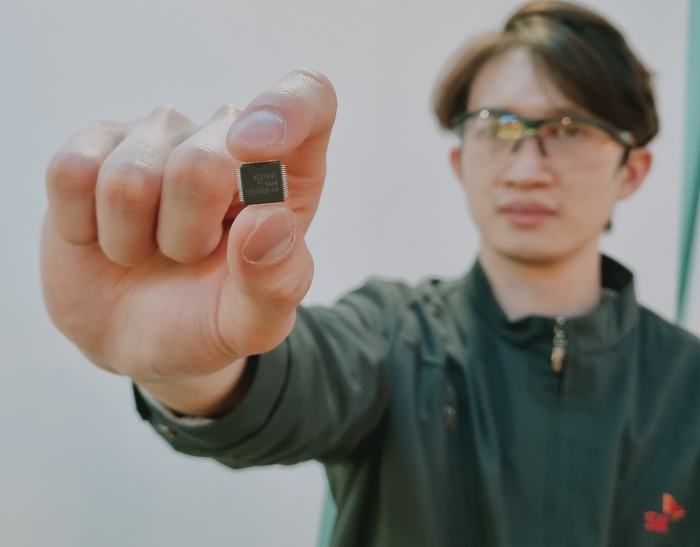
SK On co-developed a battery monitoring integrated circuit (BMIC) for use in electric vehicles
Some of the four shortlisted bidders for South Korea's SK On Co. recently went back to the drawing board to assess the value of the world's No.5 battery maker for electric vehicles, before making their final offers next month for 3 trillion won ($2.4 billion) in new shares.The rising prices of raw materials such as lithium, nickel and cobalt are prodding them to amend their valuations on SK On, alongside cooling investor sentiment toward the battery industry, according to people familiar with the situation on April 17.In February of this year, the EV battery maker narrowed bidders for its new shares to four candidates -- BlackRock, The Carlyle Group, KKR and Singapore's GIC. At the time, SK On valued itself between 35 trillion won and 40 trillion won, above the consensus estimate of 25 trillion-30 trillion won by the bidders. The company plans to pick two final investors to raise around 3 trillion won in total, on top of an additional 1 trillion won to receive from three domestic private equity firms. Their investment conditions will be identical."At the start of this year, investor sentiment toward rechargeable batteries was at its peak," said a source at one of the shortlisted bidders."But as battery makers' share prices have been on the decline and their raw material prices have spiked up, we are unsure now of how much we need to put down (on SK On)," he told Market Insight, the capital market news outlet of The Korea Economic Daily.The key risk is the soaring price of lithium. The mineral used to make the cathode materials of batteries has seen its price skyrocketing 472% over the past nine months. Since the start of this year, the lithium price has more than doubled to 469 yuan per kilogram. The sharp increase in other components such as copper foil, electrolyte and aluminum foil cast doubt over the company's value as well. The price changes of those components are hardly passed on to their customers, unlike key minerals such as lithium, nickel and cobalt.
SK On CEO Kim Jun acknowledged its challenging situation."Last year, we expected to swing to the black in 2022," Kim told the company's annual general meeting (AGM) last month. "Now the automotive semiconductor supply issue, rising raw material prices and new hiring (expenses) are working against us." SK On CEO Kim Jun speaks at its AGM on March 31DELAYS IN FUNDRAISING?The wider discrepancies in SK On's valuations could delay what will likely become the country's largest investment during the first half of this year. Shares in its bigger rival LG Energy Solution Ltd. have tumbled around 30% off their all-time high of 598,000 won hit in late January, following their glitzy market debut earlier in that month.Making investors further cautious about SK On, its CEO Kim told the AGM that the EV battery supplier would not go public until 2025 to focus on enhancing its value. For its new financial investors (FIs), that means their money could get locked up for at least three years.Moreover, SK On will unlikely provide any guarantee on FIs' future exit from the company.
SK On's NCM9 battery on displayIn a presentation made to FIs earlier on, SK was said to have shared its four-year spending plans worth 30 trillion won on facility expansion. In detail, it plans to raise 20 trillion won through bond issues and borrowings; 3 trillion-4 trillion won in equity financing from global FIs; 1 trillion-2 trillion won from domestic FIs; and the remainder from public offerings or other investors. If the company goes ahead with the financing plans, bondholders and lenders will eventually have priority over equity investors. In light of this, some bidders are proposing they buy preferred stocks convertible into ordinary shares, and their term sheet contains a clause that if the company fails to go public by a specified year, it should sharply step up interest payments to the preferred shareholders. One of the four shortlisted investors, KKR in 2021 injected 2.4 trillion won into buying preferred shares of SK E&S Co., a city gas supplier. Another SK Group unit SK Ecoplant Co. recently raised about 800 billion won in a pre-IPO share sale, with a condition attached that it would pay sharply higher interest to the new investors unless it goes public during a certain period of time.By Jun-Ho Chachacha@hankyung.comYeonhee Kim edited this article